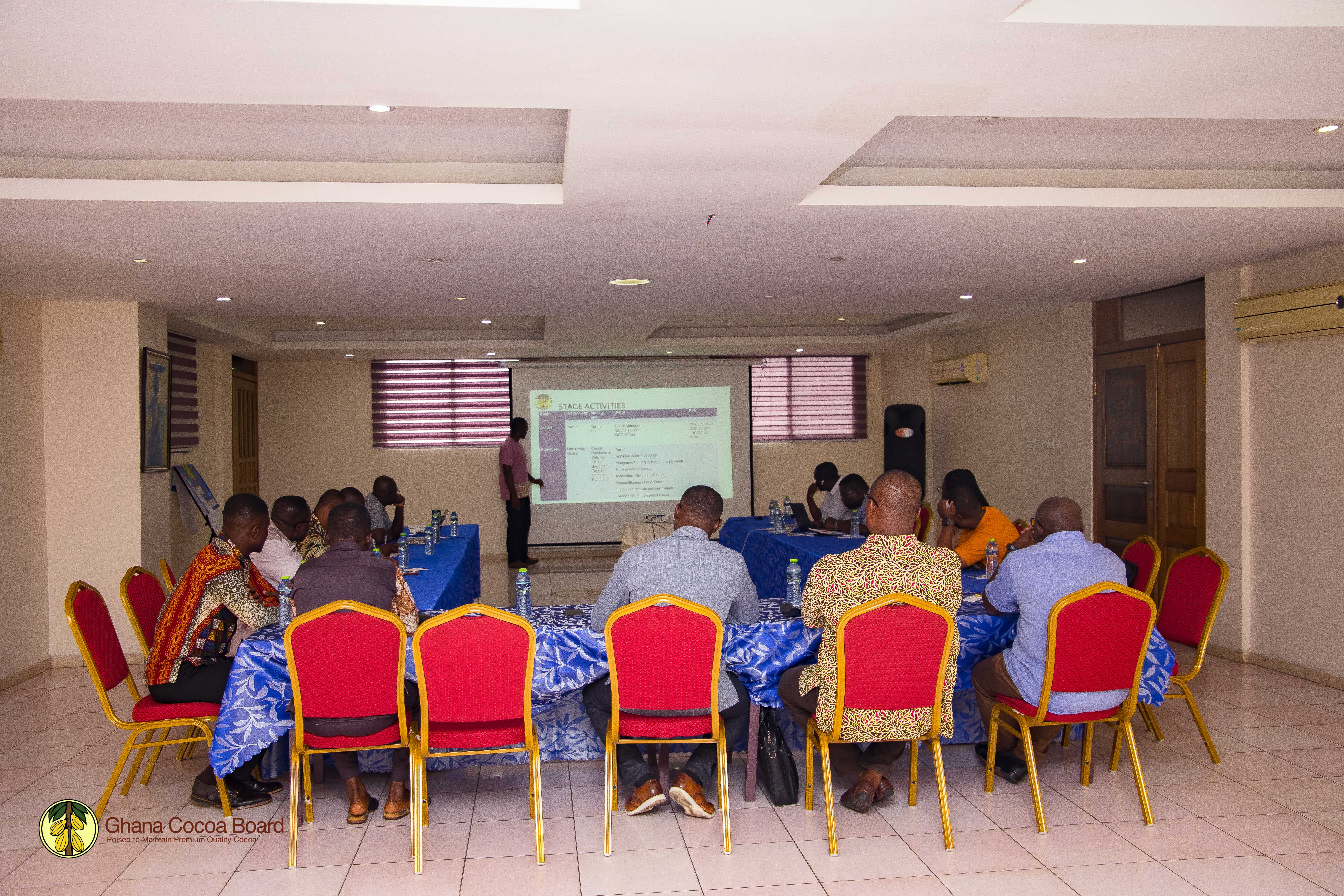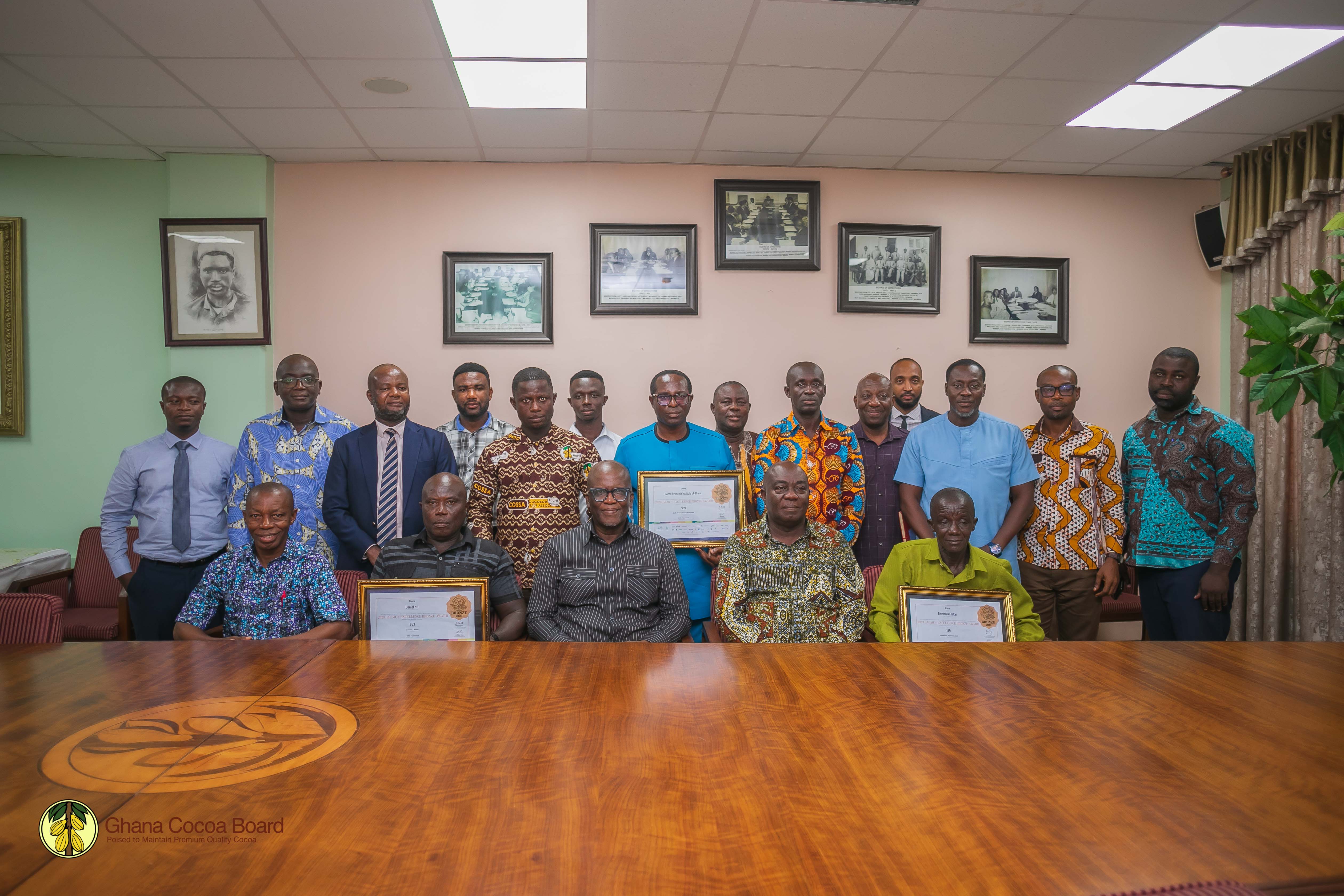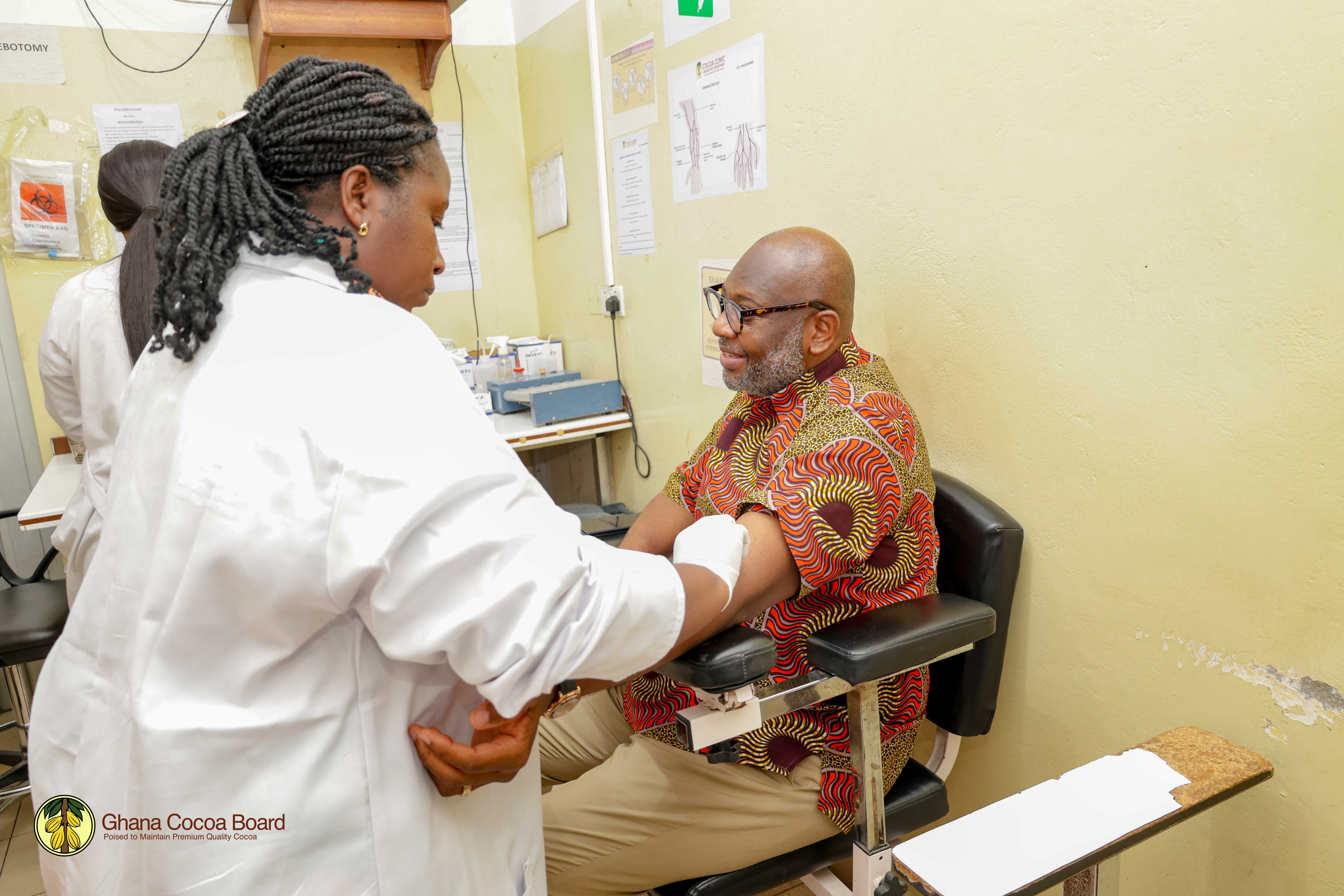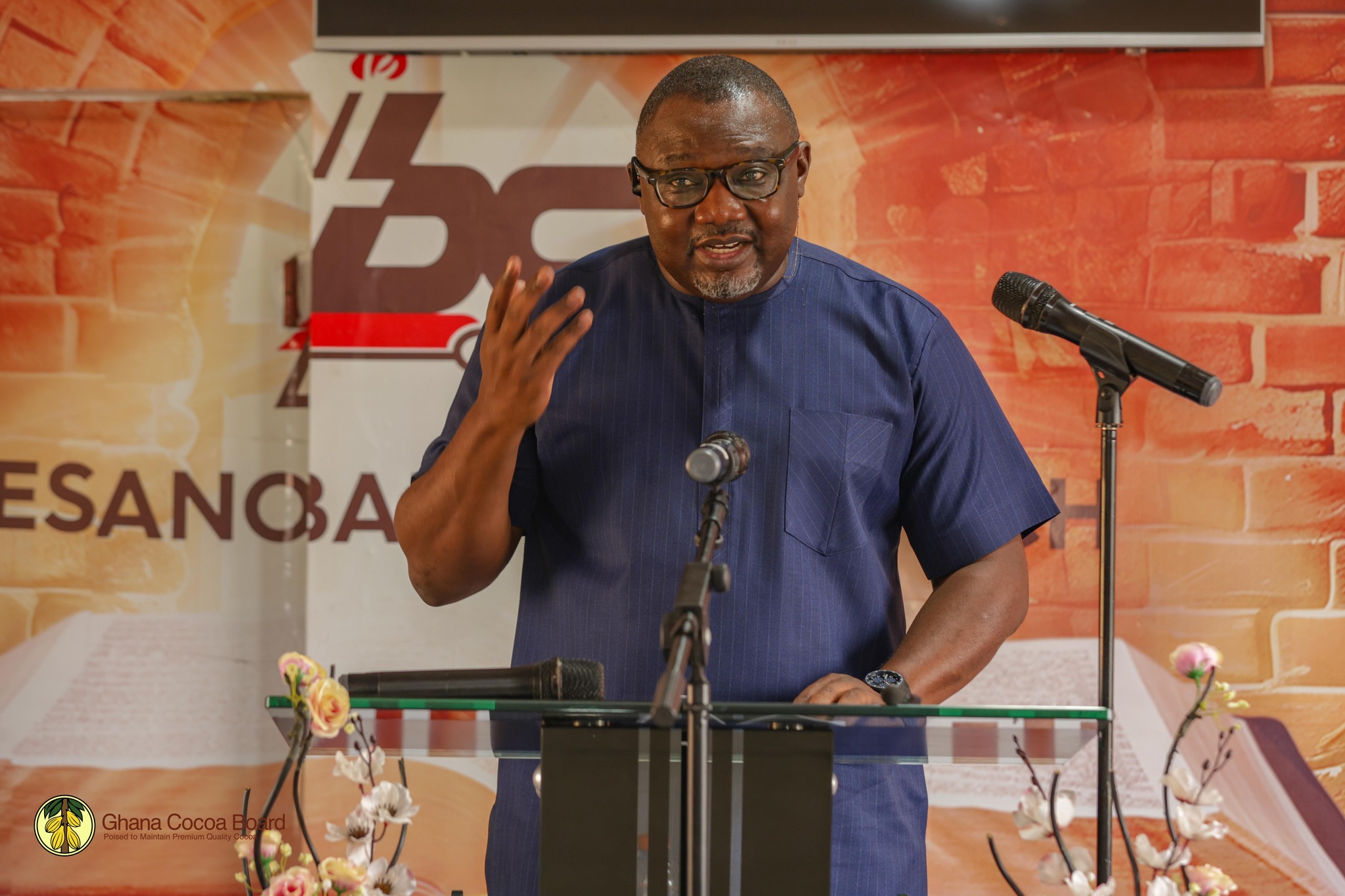COCOBOD HOLDS WORKSHOP FOR STAFF ON COCOA MANAGEMENT SYSTEM

Date: 12th August 2023
A technical workshop has been organized for staff at Aburi in the Akuapem Mampong District of the Eastern Region, to assess the quality, functionality and impact of the Cocoa Management System (CMS), one of the major initiatives of the Ghana Cocoa Board (COCOBOD).
Participants made up of national and regional representatives from the Information System Unit, Research Department, Audit Department, Cocoa Health Extension Division (CHED), Seed Production Division (SPD) and Cocoa Clinics, were educated on how the Cocoa Management System functions in collecting and collating data on cocoa farmers across the cocoa growing regions in Ghana.
Mr. Samuel Tagoe, who gave the presentation on the CMS and its functions, stated that the system consists of several applications for different purposes in the collation of data, such as the farmer registration application, which was used in enrolling cocoa farmers onto the CMS to help facilitate the Cocoa Farmers Pension Scheme (CFPS).
Other applications, he noted, include the purchasing clerk registration, cocoa purchase and cocoa depot applications.
The Deputy Information Systems Manager at the Seed Production Division (SPD), Mr. Samuel Owusu-Acheaw, lauded the CMS, describing it as an advantage for Ghana.
According to him, before the requirements in European Union legislation were introduced, COCOBOD had already started with the CMS, “thus putting Ghana ahead of other cocoa-growing countries in our efforts to meet the requirements.”
He further observed that farmers who have been captured onto the CMS database have been issued with unique identities to facilitate easy tracing of their farms and cocoa produce harvested from these farms.
Mr. Owusu-Acheaw stated that a barcode will also be assigned in the system to each sack of cocoa and will give the authorities the scope of the source of the cocoa beans to make traceability easier, adding “when the barcode is scanned it tells you all the farmers who contributed in the making of the 64kg so that when there is an issue it gives you a narrow scope to know where they are coming from because you know the farmers’ identities.”
On his part, Mr. Enoch Tettey Martey, Deputy Information Systems Manager at COCOBOD stated that the CMS will be used as a basis for the Ghana Cocoa Traceability System (GCTS) which is expected to be piloted in Assin-Fosu with the support of The Deutsche Gesellschaft für Internationale Zusammenarbeit (GIZ).
He explained that the CMS will ensure a credible traceability system to ensure that the right processes are followed in the cocoa chain, from farm to port, which will help in determining the source of problematic cocoa beans.
“CMS promotes global visibility to ascertain where cocoa is being stored at a particular time and to track cocoa beans on transit to takeover centres,” he said.
As the CMS continues to evolve, the contributions of information systems and information technology managers underscore the transformative potential of the system in Ghana's cocoa sector to promote sustainable cocoa and improve consumer assurance of the best cocoa production practices.
Other News / Articles you might be interested in.

COCOBOD HONOURS GHANAIAN COCOA FARMERS FOR EXCELLENCE AT INTERNATIONAL COCOA AWARDS
Management of Ghana Cocoa Board (COCOBOD) has honoured the winners of the 2023 International ...
Read More
DR. RANSFORD ABBEY LEADS BY EXAMPLE, UNDERTAKES ANNUAL MEDICAL EXAMINATION AT COCOA CLINIC
The Chief Executive of the Ghana Cocoa Board (COCOBOD), Dr. Ransford Abbey, has ...
Read More
COCOA MEDIA HUB LAUNCHED TO ENHANCE OPEN GOVERNANCE AND FARMER ENGAGEMENT
Ghana Cocoa Board, along with various stakeholders, has participated in the official launch ...
Read More